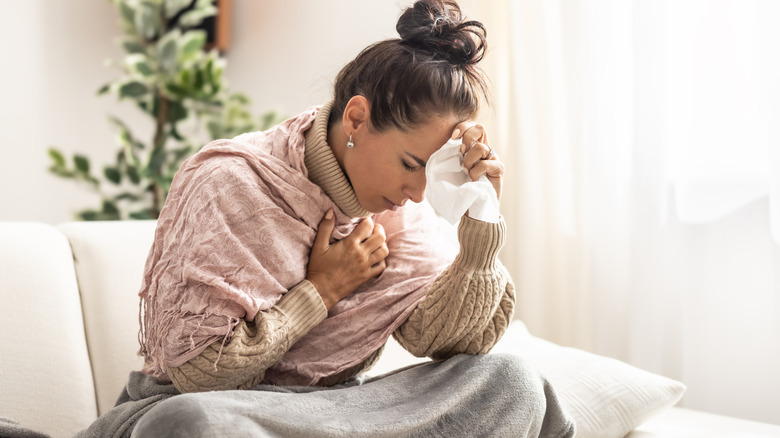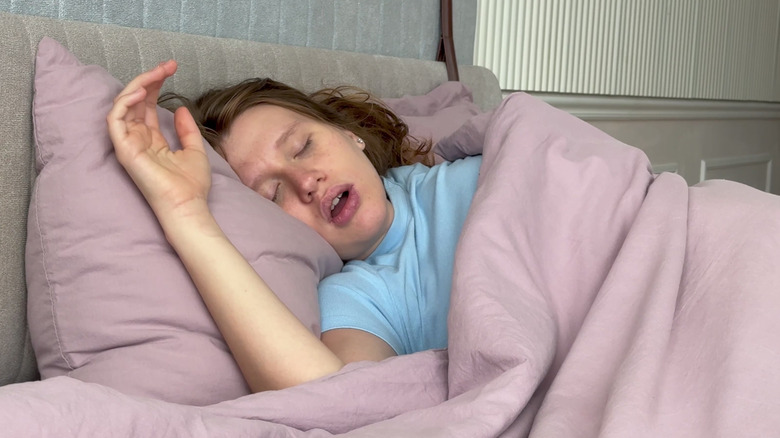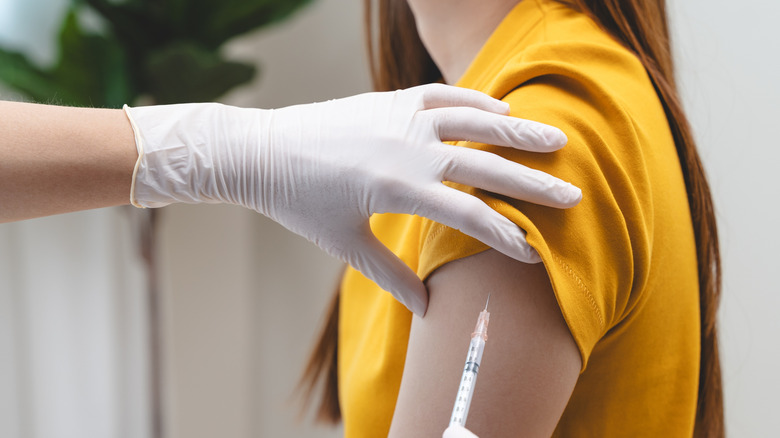The Common Sleep Disorder That Can Increase Your Risk Of Long COVID
More than likely, you've had COVID at least once. COVID has significantly evolved since it emerged in late 2019, and it will continue to infect many people each year like the common cold. For some, their battle with COVID lingers day-to-day even though they have a negative COVID test. Long COVID, clinically known as post-acute sequelae of SARS-CoV-2 (PASC), refers to people who experience symptoms like fatigue, difficulty breathing, or brain fog for weeks, months, or years after their initial diagnosis.
Although people with other health conditions have a greater risk for long COVID, a 2023 article in Sleep found that sleep apnea can also increase your risk. The study pulled data from three research networks to see who had both long COVID and sleep apnea. After factoring out other health conditions that have also been linked to long COVID, the researchers found that sleep apnea is associated with a 75% higher risk of developing long COVID among one network of patients. Women's risk for long COVID was 89% compared to men, whose odds were 59% if they have sleep apnea.
Sleep apnea is linked with COVID
At first, the researchers noticed that people with sleep apnea had almost four times the risk for developing long COVID. This risk went down when the researchers considered how comorbidities such as obesity were contributing to this increased risk. Specifically, obesity was found to be a prominent factor in both long COVID and sleep apnea. (Here are some warning signs your insomnia could be sleep apnea.)
However, sleep apnea has a close association with COVID aside from obesity and other health issues. According to the Sleep Foundation, sleep apnea and COVID have overlapping symptoms such as labored breathing and difficulty sleeping. Both can cause low oxygen levels in the blood that can worsen inflammation in your body.
Sleep apnea doesn't increase your risk of COVID, but it can increase the severity of your COVID symptoms. Untreated sleep apnea is also associated with comorbidities that also increase the severity of COVID. Per the Centers for Disease Control and Prevention, that you're more likely to develop long COVID if you've had a severe COVID infection.
Preventing long COVID
Whether you've had COVID once or many times, the CDC recommends staying current on your vaccinations to prevent a more severe COVID infection and reduce your risk of long COVID. It's also a good idea to use a HEPA filter in your home and take measures to keep the air circulating, such as using fans or opening windows. To prevent COVID or most communicable diseases, wash your hands often and clean frequently touched surfaces.
(Read which lifestyle changes can prevent long COVID.)
Preventing long COVID also might entail taking a closer look at your sleep. If you know you have sleep apnea, the American Lung Association advises treatments such as a continuous positive airway pressure (CPAP) or oral device to manage your condition. Be sure to keep these devices clean, especially if you're diagnosed with COVID. Your doctor might also recommend losing some weight or sleeping on your side to help you breathe better while you sleep. Quitting smoking and reducing alcohol are other lifestyle changes that can help manage sleep apnea and prevent long COVID.


